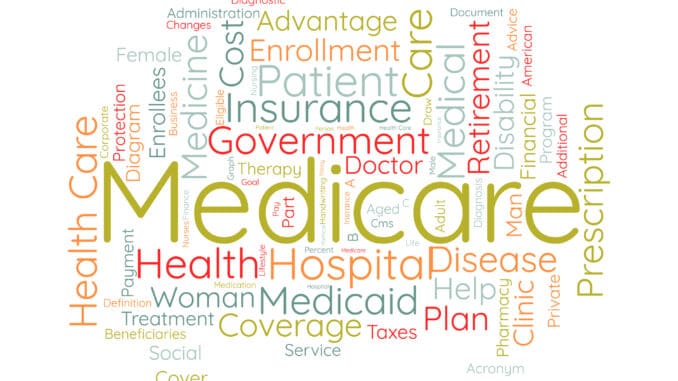
Medicare scams are fraudulent schemes that target beneficiaries of the Medicare system, often aiming to steal personal information, defraud individuals of their money, or exploit the system for illegal financial gain. These scams can take various forms, preying mainly on older adults who rely on Medicare for healthcare coverage. Understanding the common tactics and how to protect oneself is crucial to avoiding these schemes. Here are some of the most prevalent types of Medicare scams:
- Phishing Scams
- Scammers may pose as Medicare representatives and contact individuals via phone, email, or even in person. They might claim they need personal information such as Social Security numbers, Medicare numbers, or banking information to update records or issue new Medicare cards.
- Once they obtain this information, they can commit identity theft or bill Medicare for services never provided.
- Warning Sign: Medicare representatives will never call or visit asking for sensitive information. Beneficiaries should only share personal details if they initiate the contact.
- Fake Medicare Card Scams
- Scammers might tell beneficiaries they need a new Medicare card, often citing reasons like a change in the law or benefits. They will then ask for personal information to “process” the new card.
- This scam aims to steal the victim’s identity or use their information to commit fraud.
- Warning Sign: Medicare will automatically send new cards when needed, such as when they introduced cards without Social Security numbers. Beneficiaries don’t need to pay or provide information to receive these cards.
- Medical Equipment and Service Fraud
- Some scammers offer Medicare beneficiaries “free” medical equipment, such as wheelchairs, walkers, or braces. They may claim that Medicare will cover the cost entirely.
- These scams often involve billing Medicare for unnecessary or non-existent medical equipment or services.
- Warning Sign: Be wary of unsolicited offers for medical equipment. Discuss any medical device needs with your doctor and use their recommended suppliers.
- Telehealth Fraud
- With the increase in telehealth services, scams have emerged where fraudsters pose as telehealth providers offering free or low-cost consultations.
- These fake providers may bill Medicare for services that are never delivered or prescribe unnecessary tests and procedures to increase their billing.
- Warning Sign: Always verify that a telehealth provider is legitimate and Medicare-approved. Avoid using unfamiliar services that reach out directly to you.
- Medicare Advantage Plan Scams
- During open enrollment periods, scammers might pose as Medicare Advantage plan representatives, offering misleading or not genuine plans.
- They may lure beneficiaries with promises of better coverage or lower premiums and ask for personal information or upfront payments.
- Warning Sign: Verify all plan details through official Medicare resources or reputable insurance agents. Remember that legitimate Medicare plans don’t ask for payments over the phone.
- COVID-19 Scams
- Scammers have exploited the pandemic, offering fraudulent COVID-19 tests, vaccines, or treatments to Medicare beneficiaries. They may promise quick access in exchange for Medicare information or payment.
- These scams can result in identity theft or unauthorized billing to Medicare.
- Warning Sign: Medicare covers approved COVID-19 tests and vaccines without any cost-sharing. Be cautious of anyone asking for Medicare information in exchange for these services.
How to Protect Yourself from Medicare Scams
- Guard Personal Information: Never share your Medicare number, Social Security number, or bank information over the phone unless you initiated the call to a verified Medicare entity.
- Monitor Medicare Statements: Regularly review your Medicare Summary Notices (MSNs) or Explanation of Benefits (EOBs) to ensure that the services and charges listed are accurate. Report any discrepancies.
- Hang Up on Unsolicited Calls: If you receive a call or message that feels suspicious or asks for personal information, hang up and contact Medicare directly using the number on your card.
- Report Suspected Fraud: If you suspect Medicare fraud, report it to the Federal Trade Commission (FTC) or the Medicare Office of the Inspector General.
Reporting Medicare Fraud
- If you believe a scam has targeted you, report it to Medicare at 1-800-MEDICARE (1-800-633-4227).
- You can also contact your state’s Senior Medicare Patrol (SMP) program, which educates and assists beneficiaries in recognizing and reporting Medicare fraud.
Impact of Medicare Scams
- Medicare scams harm individuals by exposing them to identity theft and financial loss, straining the entire healthcare system. Fraudulent claims contribute to increased costs, which can impact premiums and the availability of resources for those truly in need.
- Beneficiaries can help reduce the impact of these scams and ensure that Medicare remains a reliable source of healthcare support by staying informed and vigilant.
Awareness is the best defense against Medicare scams. Knowing the warning signs and taking proactive steps to safeguard personal information can help protect oneself from falling victim to these schemes.
